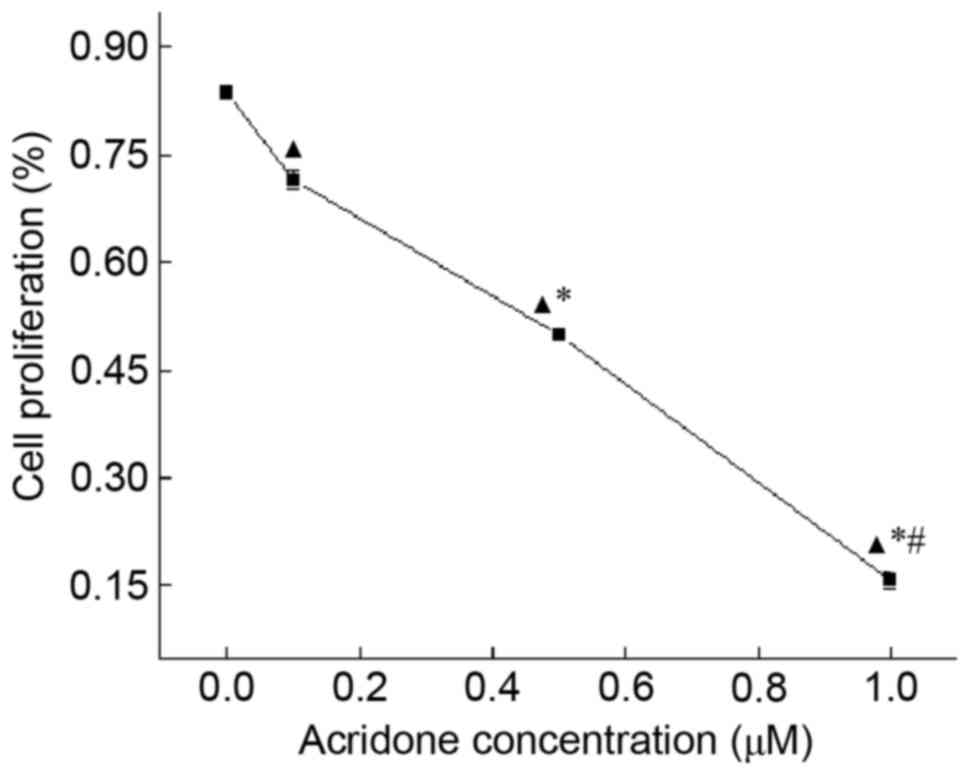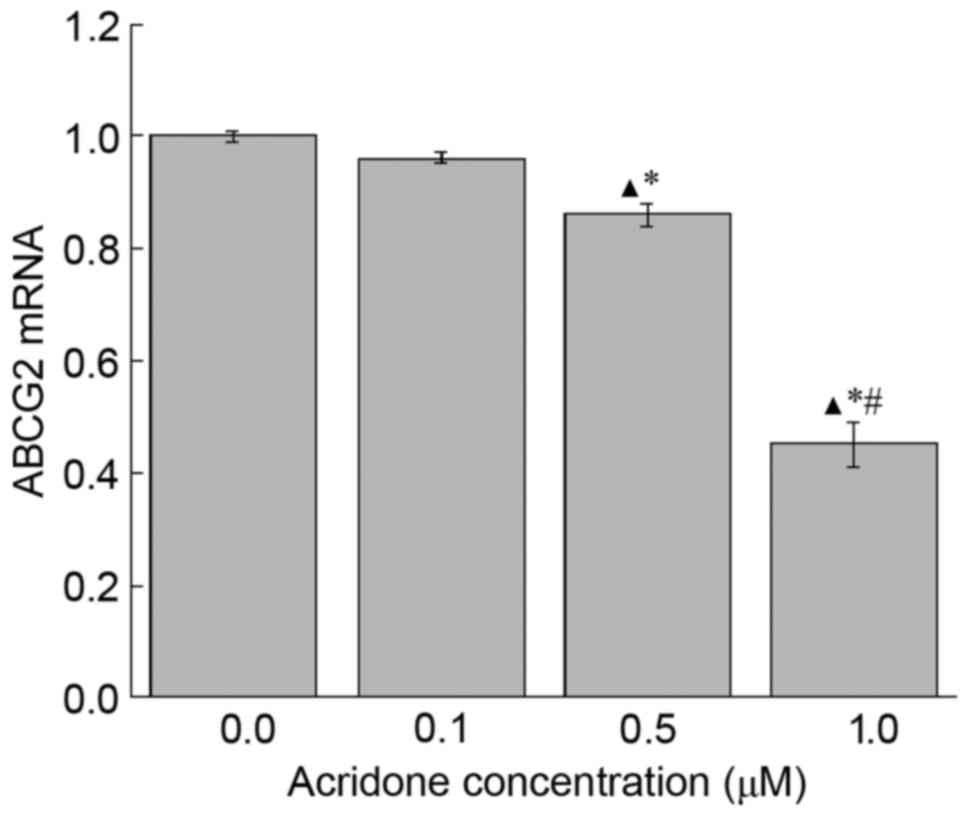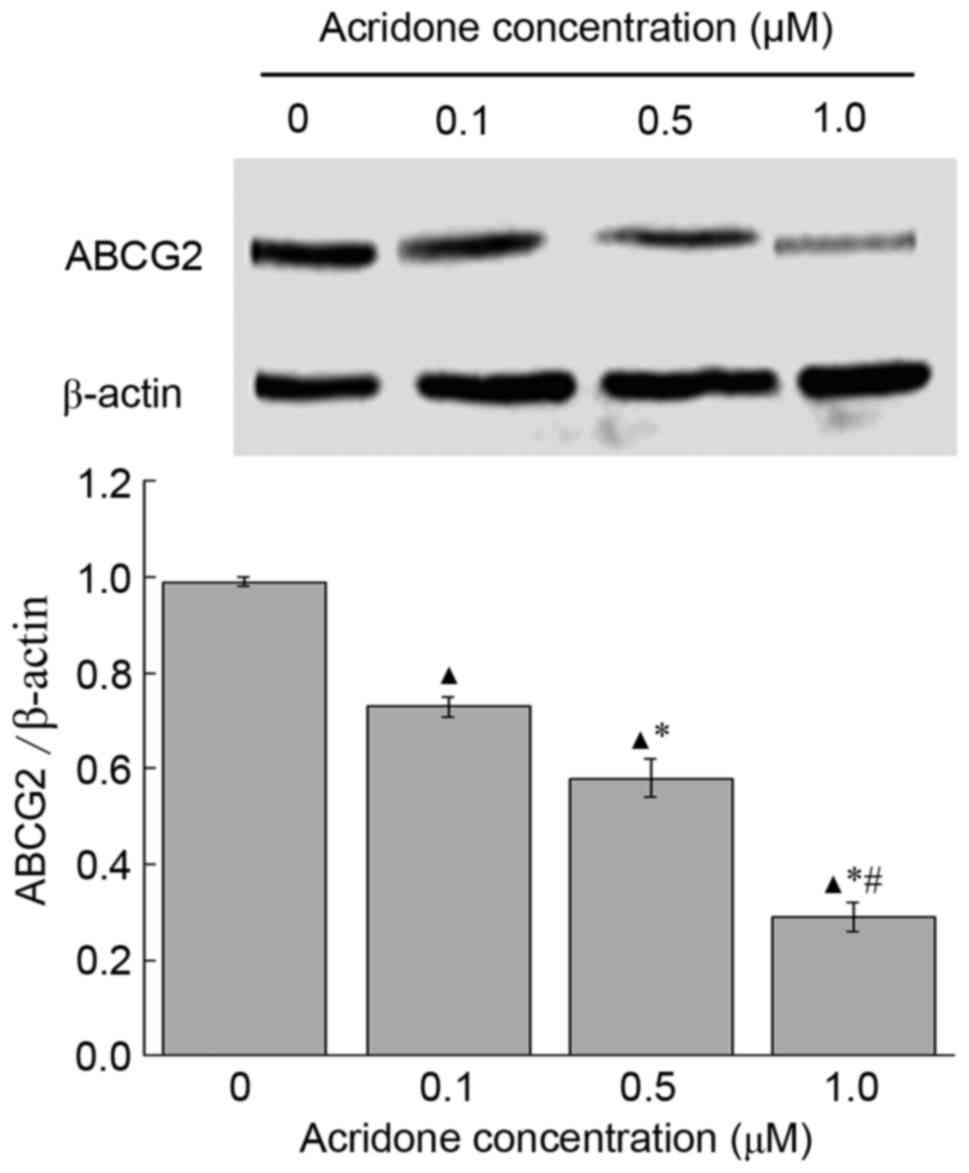|
1
|
Coughlin SS and Ekwueme DU: Breast cancer
as a global health concern. Cancer Epidemiol. 33:315–318. 2009.
View Article : Google Scholar : PubMed/NCBI
|
|
2
|
Jemal A, Center MM, DeSantis C and Ward
EM: Global patterns of cancer incidence and mortality rates and
trends. Cancer Epidemiol Biomarkers Prev. 19:1893–1907. 2010.
View Article : Google Scholar : PubMed/NCBI
|
|
3
|
Kasami M, Uematsu T, Honda M, Yabuzaki T,
Sanuki J, Uchida Y and Sugimura H: Comparison of estrogen receptor,
progesterone receptor and Her-2 status in breast cancer pre- and
post-neoadjuvant chemotherapy. Breast. 17:523–527. 2008. View Article : Google Scholar : PubMed/NCBI
|
|
4
|
Rouzier R, Perou CM, Symmans WF, Ibrahim
N, Cristofanilli M, Anderson K, Hess KR, Stec J, Ayers M, Wagner P,
et al: Breast cancer molecular subtypes respond differently to
preoperative chemotherapy. Clin Cancer Res. 11:5678–5685. 2005.
View Article : Google Scholar : PubMed/NCBI
|
|
5
|
Nguyen PL, Taghian AG, Katz MS, Niemierko
A, Abi Raad RF, Boon WL, Bellon JR, Wong JS, Smith BL and Harris
JR: Breast cancer subtype approximated by estrogen receptor,
progesterone receptor, and HER-2 is associated with local and
distant recurrence after breast-conserving therapy. J Clin Oncol.
26:2373–2378. 2008. View Article : Google Scholar : PubMed/NCBI
|
|
6
|
Huang CS, Lin CH, Lu YS and Shen CY:
Unique features of breast cancer in Asian women-breast cancer in
Taiwan as an example. J Steroid Biochem Mol Biol. 118:300–303.
2010. View Article : Google Scholar : PubMed/NCBI
|
|
7
|
Kennecke H, Yerushalmi R, Woods R, Cheang
MC, Voduc D, Speers CH, Nielsen TO and Gelmon K: Metastatic
behavior of breast cancer subtypes. J Clin Oncol. 28:3271–3277.
2010. View Article : Google Scholar : PubMed/NCBI
|
|
8
|
Morgan G, Ward R and Barton M: The
contribution of cytotoxic chemotherapy to 5-year survival in adult
malignancies. Clin Oncol (R Coll Radiol). 16:549–560. 2004.
View Article : Google Scholar : PubMed/NCBI
|
|
9
|
Kuczynski EA, Sargent DJ, Grothey A and
Kerbel RS: Drug rechallenge and treatment beyond
progression-implications for drug resistance. Nat Rev Clin Oncol.
10:571–587. 2013. View Article : Google Scholar : PubMed/NCBI
|
|
10
|
Zambre VP, Murumkar PR, Giridhar R and
Yadav MR: Development of highly predictive 3D-QSAR CoMSIA models
for anthraquinone and acridone derivatives as telomerase inhibitors
targeting G-quadruplex DNA telomere. J Mol Graph Model. 29:229–239.
2010. View Article : Google Scholar : PubMed/NCBI
|
|
11
|
Cuenca F, Moore MJ, Johnson K, Guyen B, De
Cian A and Neidle S: Design, synthesis and evaluation of
4,5-di-substituted acridone ligands with high G-quadruplex affinity
and selectivity, together with low toxicity to normal cells. Bioorg
Med Chem Lett. 19:5109–5113. 2009. View Article : Google Scholar : PubMed/NCBI
|
|
12
|
Livak KJ and Schmittgen TD: Analysis of
relative gene expression data using real-time quantitative PCR and
the 2(-Delta Delta C(T)) method. Methods. 25:402–408. 2001.
View Article : Google Scholar : PubMed/NCBI
|
|
13
|
Su TL, Kohler B, Chou TC, Chun MW and
Watanabe KA: Synthesis of the acridone alkaloids glyfoline and
congeners. Structure-activity relationship studies of cytotoxic
acridones. J Med Chem. 35:2703–2710. 1992. View Article : Google Scholar : PubMed/NCBI
|
|
14
|
Cholewiński G, Dzierzbicka K and
Kolodziejczyk AM: Natural and synthetic acridines/acridones as
antitumor agents: Their biological activities and methods of
synthesis. Pharmacol Rep. 63:305–336. 2011. View Article : Google Scholar : PubMed/NCBI
|
|
15
|
Koba M and Baczek T: Physicochemical
interaction of antitumor acridinone derivatives with DNA in view of
QSAR studies. Med Chem Res. 20:1385–1393. 2011. View Article : Google Scholar : PubMed/NCBI
|
|
16
|
Prasad VV Rajendra, Peters GJ, Lemos C,
Kathmann I and Mayur YC: Cytotoxicity studies of some novel fluoro
acridone derivatives against sensitive and resistant cancer cell
lines and their mechanistic studies. Eur J Pharm Sci. 43:217–224.
2011. View Article : Google Scholar : PubMed/NCBI
|
|
17
|
Yamamoto N, Furukawa H, Ito Y, Yoshida S,
Maeno K and Nishiyama Y: Anti-herpesvirus activity of
citrusinine-I, a new acridone alkaloid, and related compounds.
Antiviral Res. 12:21–36. 1989. View Article : Google Scholar : PubMed/NCBI
|
|
18
|
Basco LK, Mitaku S, Skaltsounis AL,
Ravelomanantsoa N, Tillequin F, Koch M and Le Bras J: In vitro
activities of furoquinoline and acridone alkaloids against
Plasmodium falciparum. Antimicrob Agents Chemother. 38:1169–1171.
1994. View Article : Google Scholar : PubMed/NCBI
|
|
19
|
Valdés AF: Acridine and acridinones: Old
and new structures with antimalarial activity. Open Med Chem J.
5:11–20. 2011. View Article : Google Scholar : PubMed/NCBI
|
|
20
|
Stankiewicz-Drogoń A, Dörner B, Erker T
and Boguszewska-Chachulska AM: Synthesis of new acridone
derivatives, inhibitors of NS3 helicase, which efficiently and
specifically inhibit subgenomic HCV replication. J Med Chem.
53:3117–3126. 2010. View Article : Google Scholar : PubMed/NCBI
|
|
21
|
Chukaew A, Ponglimanont C, Karalai C and
Tewtrakul S: Potential anti-allergic acridone alkaloids from the
roots of Atalantia monophylla. Phytochemistry. 69:2616–2620. 2008.
View Article : Google Scholar : PubMed/NCBI
|
|
22
|
Delmas F, Avellaneda A, Di Giorgio C,
Robin M, De Clercq E, Timon-David P and Galy JP: Synthesis and
antileishmanial activity of (1,3-benzothiazol-2-yl)
amino-9-(10H)-acridinone derivatives. Eur J Med Chem. 39:685–690.
2004. View Article : Google Scholar : PubMed/NCBI
|
|
23
|
Holohan C, Van Schaeybroeck S, Longley DB
and Johnston PG: Cancer drug resistance: An evolving paradigm. Nat
Rev Cancer. 13:714–726. 2013. View
Article : Google Scholar : PubMed/NCBI
|
|
24
|
Pérez-Tomás R: Multidrug resistance:
Retrospect and prospects in anti-cancer drug treatment. Curr Med
Chem. 13:1859–1876. 2006. View Article : Google Scholar : PubMed/NCBI
|
|
25
|
Wu CP, Ohnuma S and Ambudkar SV:
Discovering natural product modulators to overcome multidrug
resistance in cancer chemotherapy. Curr Pharm Biotechnol.
12:609–620. 2011. View Article : Google Scholar : PubMed/NCBI
|

















